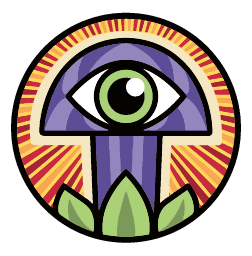
Rewiring After Trauma: Exploring Psilocybin’s Potential in TBI Recovery
Traumatic brain injury (TBI) is a challenging condition to heal from and affects millions worldwide, often leaving long-lasting effects on memory, mood, and overall quality of life. Traditional therapies focus on stabilization and rehabilitation, but what if there were tools to help the brain regenerate on a deeper level?
A new scientific review suggests psilocybin may maximize recovery from TBI by reducing inflammation, promoting neuroplasticity, and easing common co-occurring conditions such as anxiety and depression.
And this is timely: psilocybin therapy for depression has been making headlines, with multiple clinical studies showing significant reductions in symptoms of major depressive disorder. With depression and mood dysregulation being common after TBI, this overlap is a powerful point of interest for researchers and patients alike.
How Psilocybin Supports Brain Recovery
Anti-inflammatory effects
Neuroinflammation is one of the biggest roadblocks in TBI recovery. Psilocybin interacts with serotonin 5-HT2A receptors, which research shows may help regulate immune response and lower brain inflammation.
Neuroplasticity & regeneration
Perhaps the most exciting frontier: psilocybin may boost neuroplasticity, or the brain’s ability to form new pathways and repair damaged ones. In both animal models and human studies, psychedelics are linked to dendritic growth and increased synaptic density. This means potential for rewiring after trauma.
Mood & cognitive support
Beyond the physical injury, TBI often brings depression, anxiety, and even PTSD. Psilocybin-assisted therapy is already being studied for these conditions, with trials showing improvements in mood regulation, sense of meaning, and emotional resilience.
The Bigger Psychedelic Picture
Psilocybin isn’t alone. Other compounds like 5-MeO-DMT are being studied for neuroregeneration. Together, these breakthroughs support a new paradigm where psychedelics could become allies in healing brain injuries and neurological disorders.
Even first responders and veterans are turning to psilocybin for relief from trauma, depression, and PTSD symptoms.
Proceed with Responsible Curiosity
Psilocybin’s role in traumatic brain injury recovery is still unfolding, but the early evidence is compelling. However, some limitations to take into consideration:
- Many findings are from preclinical or small-scale human trials.
- Legal restrictions also limit widespread access; psilocybin remains a Schedule I substance in the U.S., although this is in review! And therapeutic programs are emerging in places like Oregon and Colorado.
- Psilocybin is not for everyone, especially those with a history of psychosis, bipolar disorder, or certain medical conditions.
- Responsible set, setting, and integration remain essential.
At Fungi Academy, we’re passionate about exploring mushrooms not just as food or medicine, but as teachers in reconnecting us with the intelligence of nature. The idea that psilocybin could help the brain heal after trauma highlights what us mycophiles already know: fungi are catalysts for regeneration, both in the forest soil and within our own bodies.
Until then, the mycelial network keeps whispering: healing is possible.







One Response
I wanna add my history of magic mushrooms. Long story: started out as a party drug, about a couple of months later I stopped drinking, on the verge of stop smoking, and most of my anxiety, depression was gone. I tripped about every other weekend, about 4-8 grams. I started drinking and smoking when I was 15 and stopped everything about 2 years ago when I started tripping a lot, I’m 47 now.The feeling was amazing. On my last trip, I was full of static, felt the need to get away from everything. I put my friends and family through soo much, I regret everything I’ve done in my past. I pray every night to be forgiven. Now I’m taking care of myself better, more compassionate to others. Now just trying to figure out where to go from here . I wanna be productive and where I fit, need to be